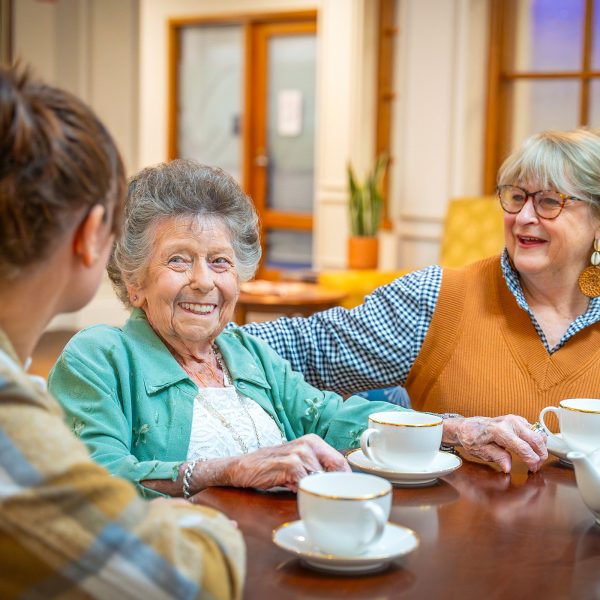Learn about the costs of residential aged care
On this page:
When you—or your loved one—move to a residential aged care home, there is usually a lot to take on and understand. You’re looking for a new place to call home, dealing with changes and sometimes feeling unsure.
If you feel a little overwhelmed, that’s perfectly natural. You can always reach our friendly team for support at any stage by calling 13 22 78. We’re here to provide guidance and answer your questions.
What types of Fees and Charges are there?
When moving into an aged care home you or your loved one may be required to pay a one-off payment or deposit, as well as ongoing fees for your care, accommodation and daily living expenses. Costs can change depending on your personal situation. These can include a basic daily fee, an accommodation payment, a means-tested care fee, and fees for extra or additional services.
The Australian Government subsidises a range of aged care services in Australia but residents with means contribute to the cost of their care and accommodation.
In residential aged care you might be required to pay one or more of the following fees:
A basic daily fee
Every person who receives residential aged care will pay a ‘basic daily fee’. This amount is set by the Australian Government.
This basic daily fee cover living costs such as meals, utilities, cleaning and laundry. For some people, this may be the only fee you are required to pay.

Accommodation payments
When you, or your loved one, move into residential aged care, you may have to make an accommodation payment depending on your individual circumstances.
The type and amount of this payment depends on your personal situation, and your preference.
Some people will have their accommodation costs met in full or in part by the Australian Government, while others will need to pay the accommodation price agreed with the aged care home they have chosen.
Note: As of 1 July 2014 the Australian Government changed the way older Australians entering aged care pay for their accommodation costs. All residents who can afford to have the choice of paying for their accommodation through a Daily Accommodation Payment or Contribution or a Refundable Accommodation Deposit or Contribution, or a combination of both. To find out more about these changes please visit myagedcare.gov.au.
If you would like to get an estimate of how much you may be asked to pay, you can use this calculator on the Australian Government’s MyAgedCare website.
You can also always contact us for guidance and support at any time—completely obligation free. Simply call 13 22 78 to speak with one of our friendly team members.
Means-tested care fee
Only some people will pay this fee. If you can afford it, the Australian Government will ask that you pay a little more to contribute towards the cost of aged care.
The Department of Human Services will make an assessment to see if you need to pay this fee. This assessment is based on an evaluation of your income and assets, and they will advise you of the amount.
People who have a higher income or a larger amount of assets (like properties or shares, for example) are more likely to pay this fee. The amount you will pay is calculated based on a percentage of your income and assets, with caps at certain amounts. These caps exist for daily fees and ‘lifetime amount’, which means the overall amount you will pay through the means-tested care fee.
Speak to our friendly team to learn more by calling 13 22 78. We’re happy to answer your questions.
What if I cannot afford to pay these costs?
You can still receive residential aged care even if you do not have the money to pay.
If paying for aged care will cause you financial hardship, you can apply for government financial assistance.
This support is made available through the Australian Government. You can find more information on the Government’s MyAgedCare website.
If you are unsure about your situation reach out to us by calling 13 22 78.
